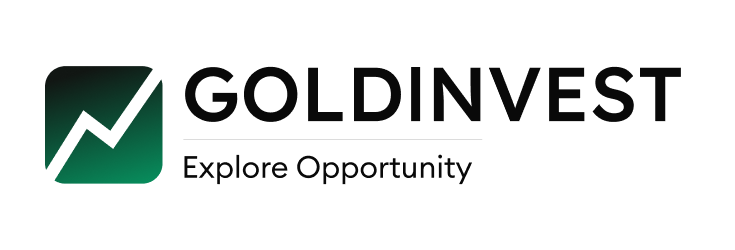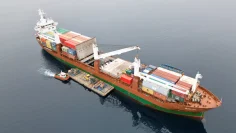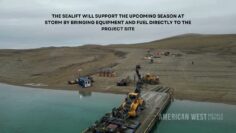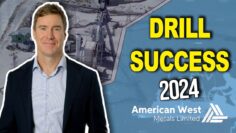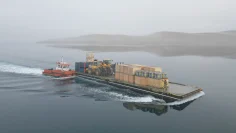{australien_flagge}American West Metals (ASX: AW1, FRA: R84) is immediately following up on last year’s great success with the first drill holes of the new season on the Arctic archipelago of Somerset Island, Nunavut. All four drill holes completed to date on the 0.32 km² 4100N zone within the 4. 125 km² Storm copper district have again intersected thick, near-surface copper sulphide intervals as hoped, confirmed by portable XRF instrumentation!
{australien_flagge}American West Metals (ASX: AW1, FRA: R84) is immediately following up on last year’s great success with the first drill holes of the new season on the Arctic archipelago of Somerset Island, Nunavut. All four drill holes completed to date on the 0.32 km² 4100N zone within the 4. 125 km² Storm copper district have again intersected thick, near-surface copper sulphide intervals as hoped, confirmed by portable XRF instrumentation!
This included 24.4 m of strong visible copper sulphides from 48.8 m in SR23-01; 27.4 m of strong visible copper sulphides from 56.4 m in SR23-02; 48.7 m of strong visible copper sulphides from 54.9 m in SR23-03; and 30.6 m of strong visible copper sulphides from 50.3 m in SR23-04. In previous years, 32 drill holes in four subprojects had already identified high-grade copper occurrences over an area of 0.4 km².
American West is using the fast, low-cost reverse circulation (RC) method for its drilling because mineralization starts at shallow depths. The drilling is designed to test the continuity of near-surface, shallow copper mineralization at 4100N over an area of 1,000 by 400 meters. By the end of the season, American West plans to calculate an initial resource. Meanwhile, parallel geophysical surveys using Moving Loop Electromagnetics (MLEM) have identified two new strong conductors in the 4100N zone that have not yet been tested. The first batch of drill samples has been sent to the lab for analysis. Results are expected in four to five weeks.
Dave O’Neill, managing director of American West Metals, called the results “fantastic.” “The initial drill holes are showing the volume and size of mineralization as we had hoped, and the geophysics indicate that we have not yet reached the strongest zones. This is an excellent result for the resource potential of the 4100N Zone.”
A total of about a dozen drill holes are planned for 4100N this season. This will be followed by additional RC drilling on nearby targets 2750N and 2200N, where near-surface copper mineralization has also been identified in the past. All of this drilling is designed to define an initial JORC resource at the 4100N, 2750N and 2200N zones.
Once the resource definition drilling is completed, American West plans to test more remote exploration areas, including the Blizzard, Tornado and Tempest properties. The Tempest prospect is located approximately 40 kilometers south of the Storm deposit and contains a large (>250 m long) copper anomaly exposed at surface with up to 32% Cu. The location and distance from Storm illustrate the extent of the promising sedimentary copper horizon within the project area.

Figure 1: RC drilling in the 4100N zone, Storm Copper Project. Every hole completed to date in the 2023 drill program has successfully intersected copper sulphides.
The predominant copper sulphide minerals observed in holes to date are chalcocite, with minor bornite and chalcopyrite at the margins of mineralized intervals and within veins. Minor native copper and copper oxides (mainly malachite and cuprite) are also present. Chalcocite is an important ore mineral due to its high grades (up to 79.8% copper) and excellent metallurgical properties.
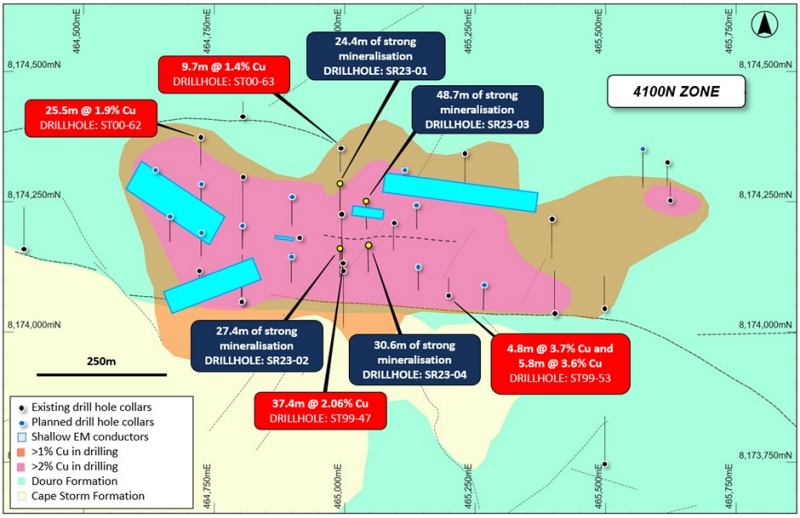
Figure 2: Plan view of the 4100N Zone showing the interpreted footprint of copper mineralization (defined by drilling), surface EM anomalies and drilling, overlaying the regional geology.
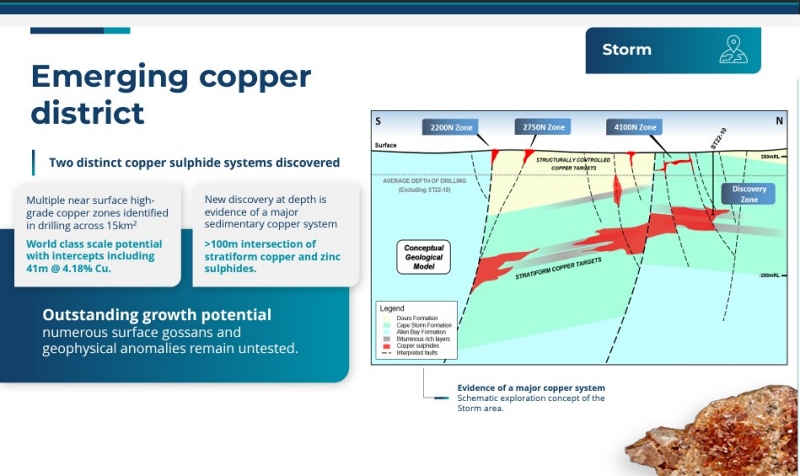
Figure 3: Current drilling is exclusively targeting near surface mineralization on the 4100N Zone and subsequently on the 2750N and 2200N Zones. Geologists suspect that these occurrences are expressions of an underlying layer of sedimentary copper that is present over a large area at the Storm project.
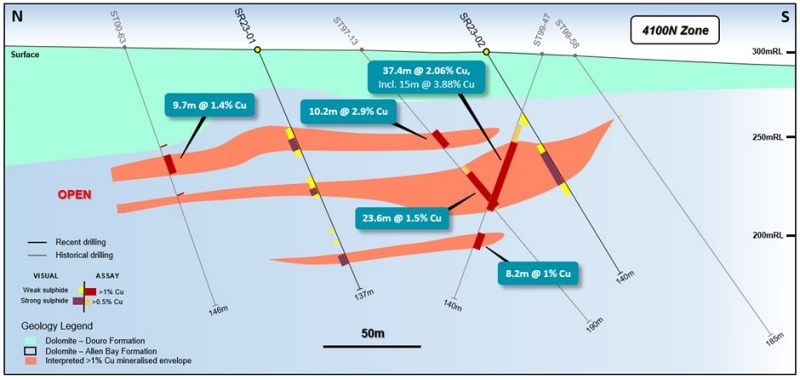
Figure 4: Geological section view at 465,000E showing interpreted mineralized envelope (>1% Cu) and visual observations from recent drill holes.
In parallel with the Exploratoin, American West continues to test ore sorting and processing for a possible direct shipment operation (DSO). Results on this will be available shortly.
Conclusion: The Storm Copper Project offers everything a junior explorer could wish for: It is strategically located and, at more than 4,000 km², large enough to attract the interest of majors (down the road). At the same time, the initial high-grade copper discoveries on the combined 4100N, 2750N and 2200N zones, just 0.4 km² in size, offer themselves as a possible starter project that even a junior with a limited budget could shoulder. Almost ideally, three elements come together: First, thick, near-surface packages with high copper grades; second, favorable, flat-lying stratigraphy and – to date – good continuity of deposits; and third, the extremely high proportion of the copper mineral chalcocite, which, because of its high copper content, could enable mining by simple crushing and sorting for direct shipment operations (DSO). Tests on this are already underway. The above factors could have an extremely positive impact on the level of capital expenditure, subsequent operating costs and even the carbon footprint of the project. Instead of an estimated $300 million in capital expenditures for an underground mine, American West could do < $20 million for an open pit DSO project. Instead of $60 to $100 per ton underground, open pit/DSO operating costs could be $5 to $10 per ton. Actual data, including the initial resource, is expected to be included in an initial scoping study as early as this fall. Until then, it will be extremely exciting! That’s because all the other major exploration targets on the Storm project, such as the Blizzard, Tornado and Tempest properties, come on top as upside potential. American West is quite rightly talking about the world class potential of its Storm project. We recommend our readers to put American West on their watchlist and promise further updates on an ongoing basis.
Disclaimer: GOLDINVEST Consulting GmbH publishes comments, analyses and news on https://www.goldinvest.de. These contents serve exclusively the information of the readers and do not represent any kind of call to action, neither explicitly nor implicitly they are to be understood as an assurance of possible price developments. Furthermore, they in no way replace an individual expert investment advice, it is rather promotional / journalistic publications. Readers who make investment decisions or carry out transactions on the basis of the information provided here do so entirely at their own risk. The acquisition of securities, especially with shares in the penny stock area, carries high risks, which can lead to a total loss of the invested capital. The GOLDINVEST Consulting GmbH and its authors expressly exclude any liability for financial losses or the content guarantee for topicality, correctness, adequacy and completeness of the articles offered here. Please also note our terms of use.
Pursuant to §34b WpHG (Securities Trading Act) and according to paragraph 48f (5) BörseG (Austrian Stock Exchange Act) we would like to point out that principals, partners, authors and employees of GOLDINVEST Consulting GmbH hold or may hold shares of American West Metals and therefore a possible conflict of interest exists. We also cannot exclude that other stock letters, media or research firms discuss American West Metals during the same period. Therefore, symmetrical information and opinion generation may occur during this period. Furthermore, there is a consulting or other service contract between American West Metals and GOLDINVEST Consulting GmbH, which means that a conflict of interest exists.
